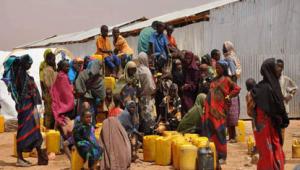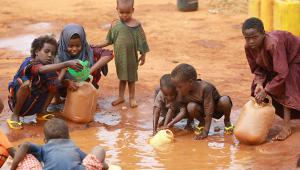Figures collected from members of the OECD’s Development Assistance Committee (DAC) show that they spent over $135bn on official development assistance (ODA) in 2014, marking a 0.5% decline in real terms from the previous year when aid spending was at an ‘all-time high’.
The OECD said high debt relief for Myanmar in 2013 was behind much of this drop. But excluding this, debt relief ODA to the poorest countries fell by 8%.
Last year, five of the DAC’s 28 member countries – Denmark, Luxembourg, Norway, Sweden and the UK – continued to exceed the United Nations target of keeping ODA at 0.7% of gross national income.
The US, UK, Germany, France and Japan were the world largest donors, the data showed.
In addition, 13 countries including, Finland, Germany, Sweden and Switzerland reported a rise in net ODA.
Fifteen DAC members reported lower ODA, with the biggest declines in Australia, Canada, France, Japan, Poland, Portugal and Spain.
‘I am encouraged to see that development aid remains at a historic high at a time when donor countries are still emerging from the toughest economic crisis of our lifetime,’ said OECD secretary-general Angel Gurría.
‘Our challenge as we finalise post-2015 development goals this year will be to find ways to get more of this aid to the countries that need it most and to ensure we are getting as much as we can out of every dollar spent.’
DAC chair Erik Solheim added that ODA remained crucial for the poorest countries and it was necessary to ‘reverse the trend of declining aid to the least-developed countries’.
‘OECD ministers recently committed to provide more development assistance to the countries most in need. Now we must make sure we deliver on that commitment,’ Solheim said.
ODA makes up more than two thirds of external finance for the world’s least-developed countries, the OECD said. In July, at the International Conference on Financing for Development in Addis Ababa, the organisation will call for more of this money to be used as a lever to generate private investment and domestic tax revenues in poor countries.





